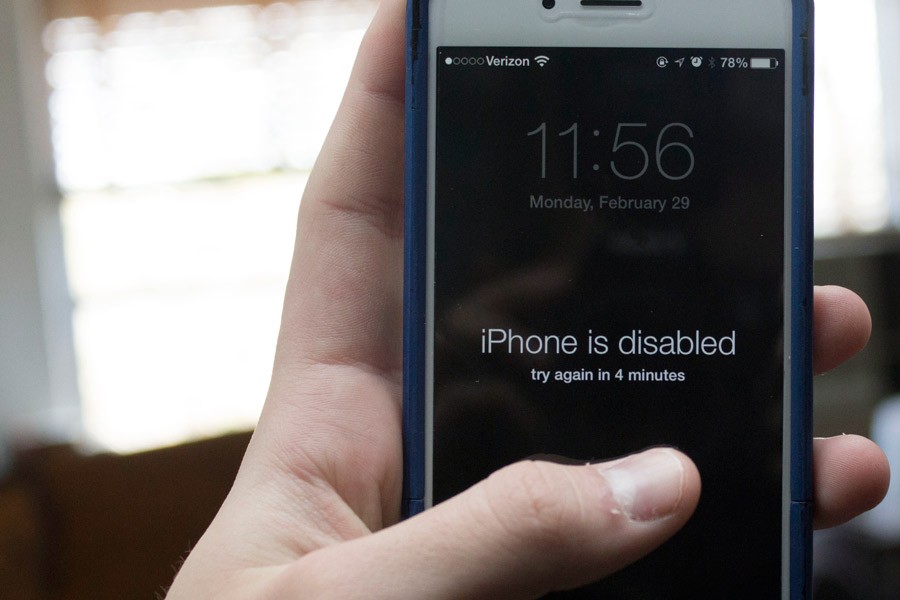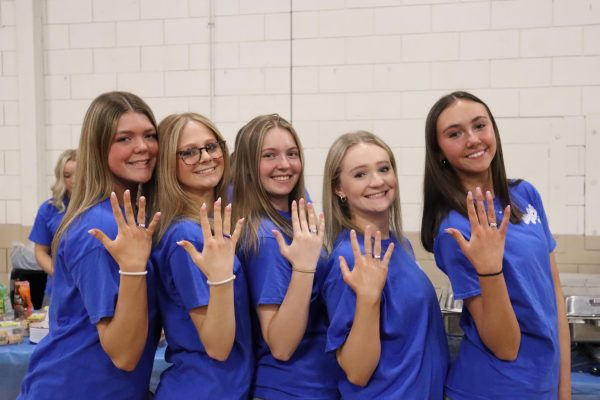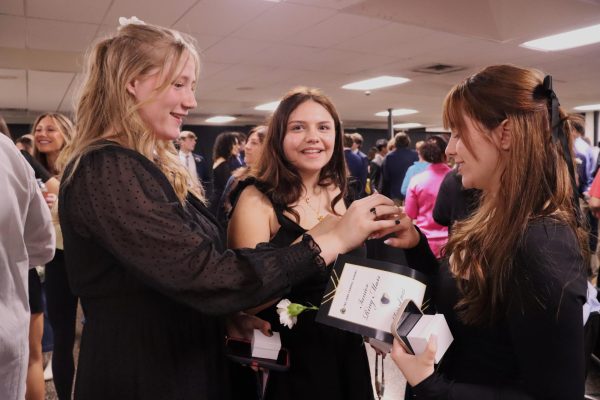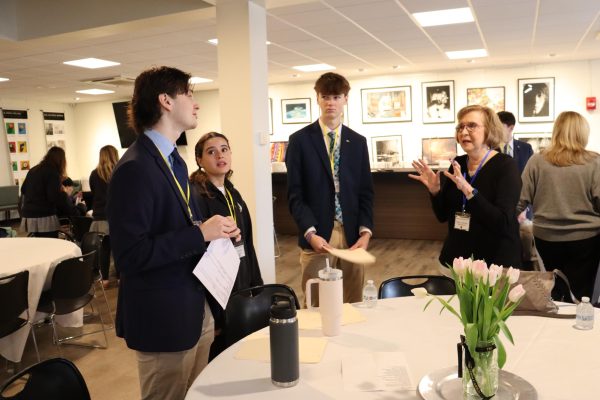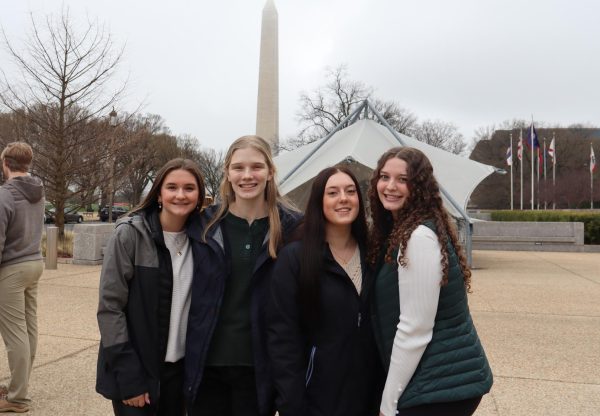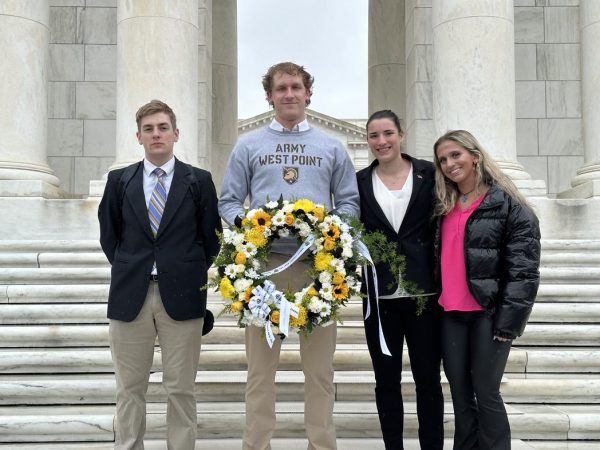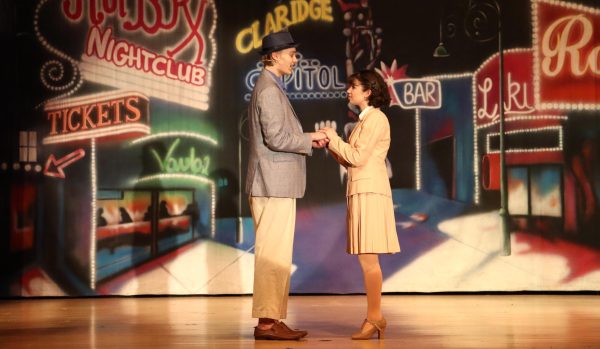Apple battles FBI over iPhone encyrption
The FBI requested that Apple unlock the iPhone of the San Bernadino shooter Syred Farook, who was part of a attack that left 14 people dead in Dec. Apple refused to unlock the phone after being ordered by a federal judge.
Apple recently refused orders from the U.S. Department of Justice to assist the Federal Bureau of Investigation (FBI) in unlocking a terrorist’s phone. The FBI has the iPhone of Syed Farook, one of the San Bernardino shooters. He was part of the attack which killed 14 people on Dec. 2, 2015.
However, the FBI cannot access any of the information on the phone, and after receiving an order from a federal judge, Apple still refuses to help the FBI unlock the phone.
The iPhone is locked with a four number passcode, and after ten failed attempts to enter a password, all data stored on the device may be deleted. The FBI requested that Apple create a program allowing them to use a computer to test every possible password combination without potentially deleting the information on the device after ten tries. The federal judge ordered Apple to comply with the FBI under the All Writs Act, which orders companies to comply with the government if the action is not already covered by law.
According to Apple’s website, “The government asked a court to order Apple to create a unique version of iOS that would bypass security protections on the iPhone lock screen. It would also add a completely new capability so that passcode tries could be entered electronically.”
Apple still refuses to help the FBI unlock the iPhone. In a Feb. 16 letter, Apple CEO Tim Cook explained that they would appeal an order from the U.S. Circuit Court of the Central District of California.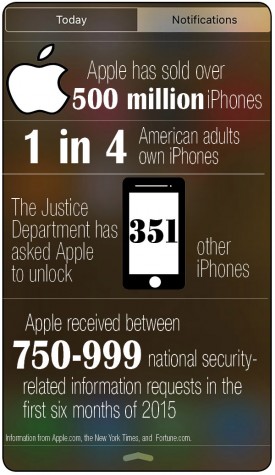
The company is arguing that if they create an operating system that could bypass passwords and security measures, criminals would use it to hack customers’ iPhones and steal their personal information. They are also arguing that the government could use this program to access the information on any Apple device, therefore undermining “the very freedoms and liberty our government is meant to protect.”
In the past, however, Apple has extracted information from almost 70 phones. Apple claims that they executed these extractions while iPhones were operating under iOS7, and the iPhone currently in the FBI’s possession operates under iOS9.
Apple said in a press release on Apple.com, “it is certainly possible to create an entirely new operating system to undermine our security features as the government wants. But it’s something we believe is too dangerous to do.”
The FBI has asserted that they will use the program responsibly and protect citizens’ privacy. “We simply want the chance, with a search warrant, to try to guess the terrorist’s passcode without the phone essentially self-destructing and without it taking a decade to guess correctly. That’s it. We don’t want to break anyone’s encryption or set a master key loose on the land,” FBI Director James Comey wrote in a press release.
Apple is contesting the decision in court and has taken the issue to Congress, despite criticism from the families of the San Bernardino victims, former Microsoft CEO Bill Gates, and presidential candidate Donald Trump, among others. Companies such as Facebook and Google are backing Apple’s decision.
Cook has called on the FBI to withdraw its request under the All Writs Act and form a panel of intelligence, civil liberty, and technology experts to discuss the issue before making a decision. The House Judiciary Committee initiated a hearing on the issue titled “The Encryption Tightrope: Balancing Americans’ Security and Privacy” on March 1. According to the Committee Chairman Bob Godlatte, “our goal is to find a solution that allows law enforcement to effectively enforce the law without harming the competitiveness of U.S. encryption providers or the privacy protections of U.S. citizens.”
Some law enforcement officials have suggested that Congress should resolve the issue and pass legislation “requiring phones to be manufactured so that they would be accessible to law enforcement when law enforcement has obtained a search warrant,” according to a proposal from the New York City District Attorney’s office.
Members of the JC community are concerned about how the fight between Apple and the FBI will affect their privacy. “If they release the encryption code to one group, what’s preventing them from releasing it to another group? Even if you’re not doing anything illegal, would you want someone unknowingly checking your phone?” Director of Technology Greg Russell said.
Grace Mottley is a News Editor for The Patriot and jcpatriot.com.



